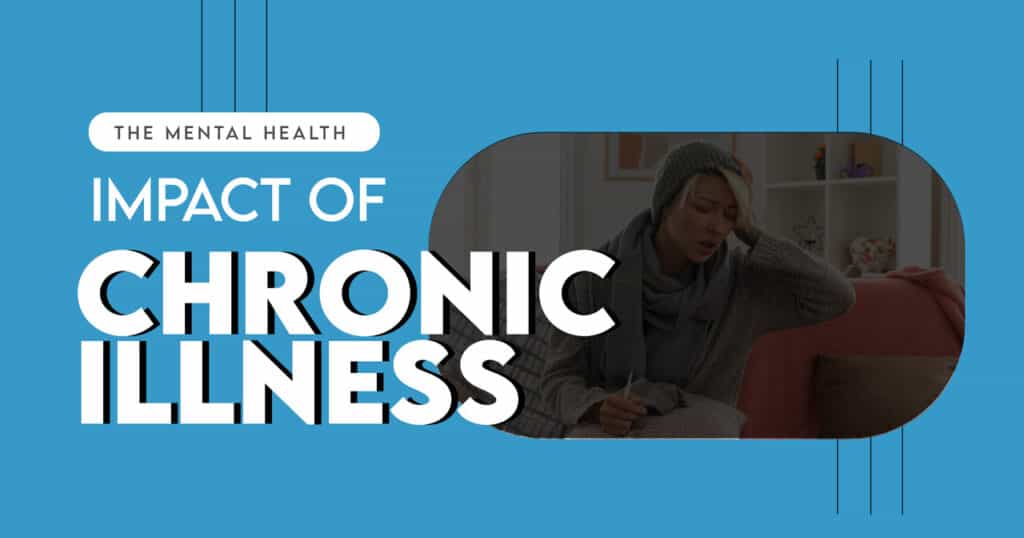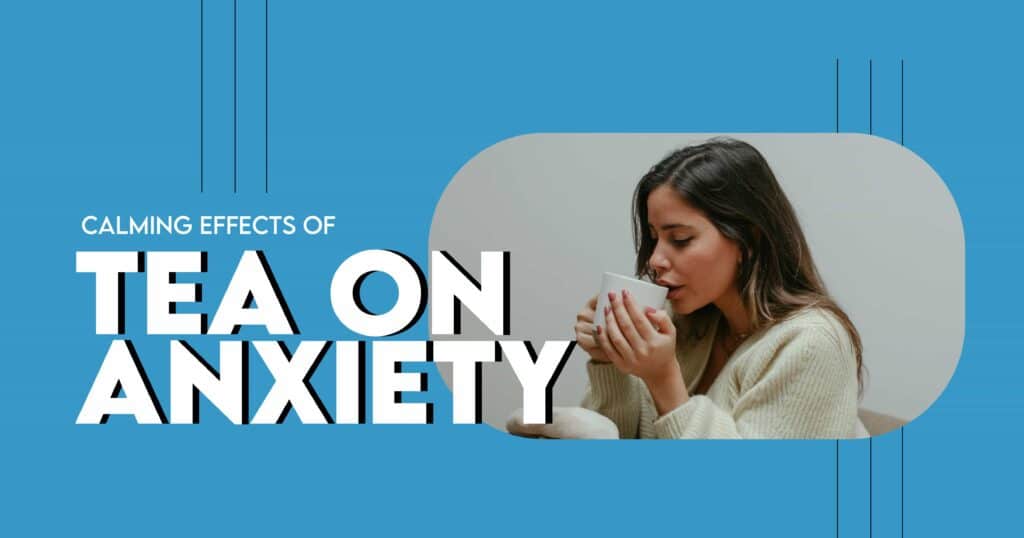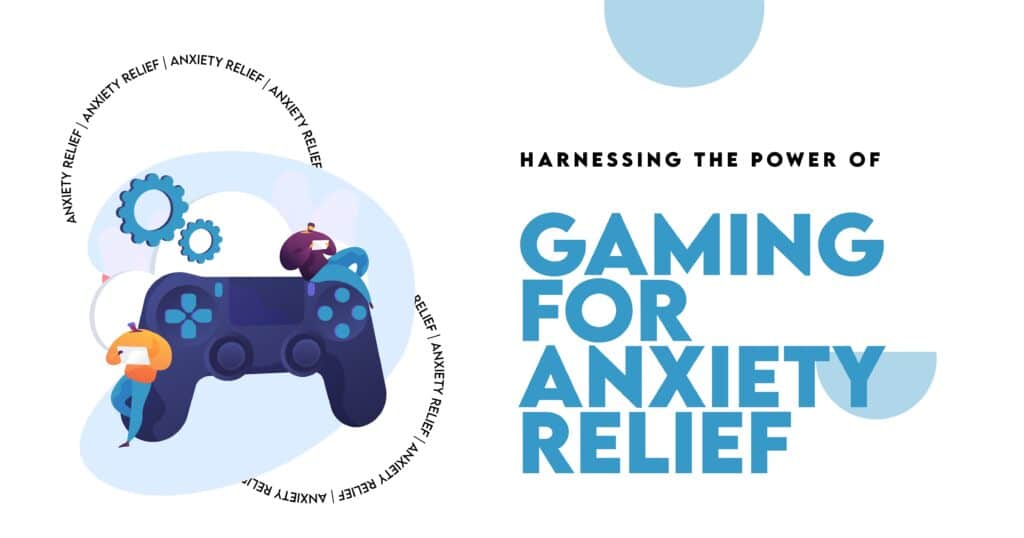It is normal to feel upset and anxious when you have a cold or food poisoning, especially when the illness forces you to cancel your plans or reschedule an important event. Imagine how difficult it is to find a balance between your physical and mental well-being when you are dealing with chronic diseases. Research has shown that people who struggle with chronic illnesses are more likely to develop a mental disorder – depression and anxiety are common among people with disabilities and serious health conditions.
Our article will focus on the connection between chronic illness and mental health, underline the main issues chronically ill individuals face on a daily basis, and share certain techniques you can implement to improve your mental state without further jeopardizing your physical health.
Common Mental Health Challenges Associated with Chronic Illness
Depression
| Symptom | Depression |
| Emptiness | While mental disorders are often linked to emotional outbursts, one of the major signs of depression is lack of emotion – you feel numb, nothing around you pleases or angers you, and you start believing nothing has meaning anymore |
| Pessimism | A negative outlook on life and in particular on the future may signify an underlying problem – if you believe nothing will work out and all your endeavors will be unsuccessful, this hopelessness often suggests the presence of depression |
| Low Energy | The psychological impact of chronic diseases is the lack of energy – even after a good night’s sleep you may feel exhausted and incapable of performing the most basic duties |
Anxiety
| Symptom | Description |
| Constant Restlessness | Feeling worried or irritated from time to time is not a big deal – you can be nervous ahead of an exam or work presentation; however, if you have this tight feeling in your stomach several times per week, it may mean you are experiencing anxiety caused by your illness |
| Inability to Concentrate | Your mind is racing – you cannot focus on the easiest tasks you were able to carry out without breaking a sweat in the past – and your attention span has become so short you start questioning your memory |
| Random Physical Manifestations | From cold and hot flushes to occasional nausea – unfortunately, people with chronic illnesses exacerbated by anxiety will struggle both mentally and physically especially when the condition is untreated for a long time |
Stress and Burnout
| Symptom | Description |
| Headaches | Whether your burnout was caused by the long hours you spend at the hospital or you became extra-sensitive to the noise around you, a headache and sometimes even a migraine is an unfortunate consequence of this mental disorder |
| Sleep Disturbances | People often fail to sleep at night after receiving a chronic illness diagnosis – in some cases, their sleep quality is worsened for months and years to come |
| Weak Immune System | You may notice you are more prone to various infections and disorders you did not have previously – from skin infections to digestive disorders, people with chronic illnesses develop additional symptoms |
How Chronic Illness Impacts Daily Life and Mental Well-being
Whether the chronic disease you were diagnosed with leads to a dramatic weight loss or you are now taking medication that impacts your physical and mental state, there are endless mental health challenges with chronic illness – and some of them may not even be visible at first:
- Fatigue and pain are not uncommon when you are suffering from an illness that cannot be cured. And these are just minor symptoms – obviously, people with diabetes or asthma will have to make adjustments to their physical activities.
- You may feel overwhelmed and lost when coping with chronic illness: mental health issues are likely especially when you can no longer keep up with your peers or have to stay home more often. The disease will have a negative influence on your social life in case you are not able to work or go out for dinner.
- Another aspect of illness management is financial – not every person, even with great health insurance, can afford the expenses they accumulate while treating or managing the illness. Financial struggles sometimes serve as a catalyst for mental disorders such as burnout and depression.
Coping Strategies for Managing Mental Health with Chronic Illness
Support Systems
| Who Can Help You | Description |
| Family and Friends | Whether your loved ones offer their support right away or you feel you need to make a call and let them know about your current condition, do not hesitate to reach out to people that care about you – the sense of belonging to your community and ability to confide in a difficult moment will be a welcome source of happiness |
| Support Groups | Find people that have a common purpose with you – you may be on the road to recovery or hoping to make peace with your condition. People that have a complete understanding of what you are going through, both physically and emotionally, will ease your mental burden |
Therapy and Counseling
| Type of Therapy | Description |
| Individual Therapy | Schedule an appointment with a therapist to talk in private about your disease – this type of therapy will allow you to address specific concerns and receive personalized attention with an approach tailored to you |
| Group Therapy | Some people benefit from group therapy – the type of psychotherapy that helps several individuals at the same time. Join a local community under the guidance of a mental health professional and communicate with them on a regular basis |
Mindfulness and Stress Management Techniques
| Technique | Description |
| Breathing Exercises | This stress management strategy remains one of the simplest ways to calm down and bring back the clarity of the mind. Dedicate twenty or thirty minutes per day to silent breathing focusing on different body parts and you may see an improvement in both chronic illness and mental health |
| Proper Sleep Routine | Avoiding long naps, putting away electronic devices an hour or two before you sleep, listening to music and relaxing before going to bed – all these techniques will help you feel better during the night and the day |
| Better Lifestyle | It is proven that chronically ill people who struggle to maintain a healthy weight and proper diet further worsen their condition – limit the amount of sugar and caffeine you consume, drink water, and introduce fruits and vegetables to your diet |
The Role of Healthcare Providers in Supporting Mental Health in Chronic Illness Patients
There is a common misconception only individuals with confirmed mental health issues are supposed to be in therapy. This is not true – nowadays, therapists have the skills to help patients who just need a safe space to vent out their frustrations and feelings related to a purely physical diagnosis. Besides, a person diagnosed with a serious illness may feel alone in the world – a therapist will offer the support they require on the way to peace, acceptance, and meaningful changes to their future lifestyle.
When to Seek Help: Recognizing Signs of Mental Health Struggles
If you are unable to process a chronic health diagnosis, do not postpone a visit to a doctor. A mental health professional will guide your emotional responses to the disease, alleviate the fears you may have, and encourage you to seek joy in life even if at the moment everything seems hopeless. The same recommendations apply if someone from your inner circle was recently diagnosed and their behavior changed for the worse – first of all, offer them to vent to you and be ready to listen; if the situation has worsened, offer them to give a chance to therapy – a specialist will be equipped to address their needs and teach them how to cope with significant life changes.
Take your life under control – it is possible to master crucial mental health techniques in therapy so that you remember you have support, you can be truly seen and comforted, your feelings and emotions matter, and your health symptoms – both physical and mental – can be managed.
FAQs
- Is there a connection between chronic illness and mental health?
There is a proven link between mental issues and chronic illnesses – since it is impossible to get rid of the chronic physical condition completely, it tends to create psychological problems in the long run.
- What are the consequences of a chronic disease?
Apart from physical complications and limitations caused by the illness itself, it may negatively impact other aspects of the person’s life – a disease often makes the individual feel depressed, anxious, and isolated.
- How can I recognize mental health problems as a chronically ill individual?
Pay attention to your own well-being as well as the signs of potential mental health issues your family and friends may exhibit – if you notice someone you are close with does not eat enough, sleeps little, their mood changes, or they try to avoid communicating with other people, this may indicate a mental health problem.
- How can I improve my mental well-being while struggling with a chronic illness?
Adopt better eating habits, remember to drink enough water, go for a walk several times per week, exercise within your abilities, do not turn your back on your friends and hobbies, and remain positive even when facing a difficult challenge such as a chronic disease.
- Can a therapist help a chronically ill person?
Whether you know the long-term goals you want to accomplish with therapy or you simply need to talk to another person to let them know about your frustrations and feelings, therapy may be the answer. Find a mental health provider who specializes in helping people with chronic illnesses and book an appointment – make a first step to process your fears about the future.








